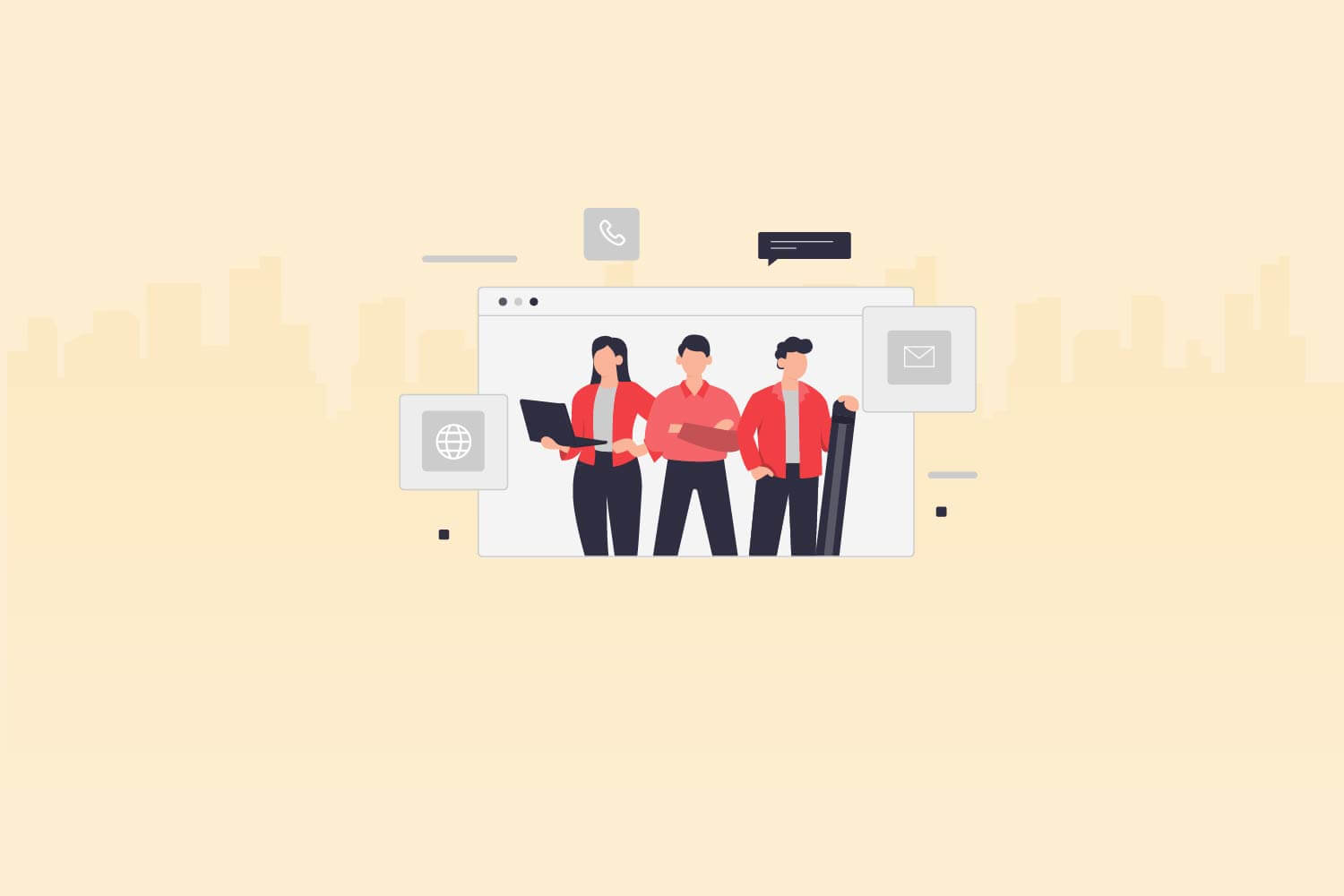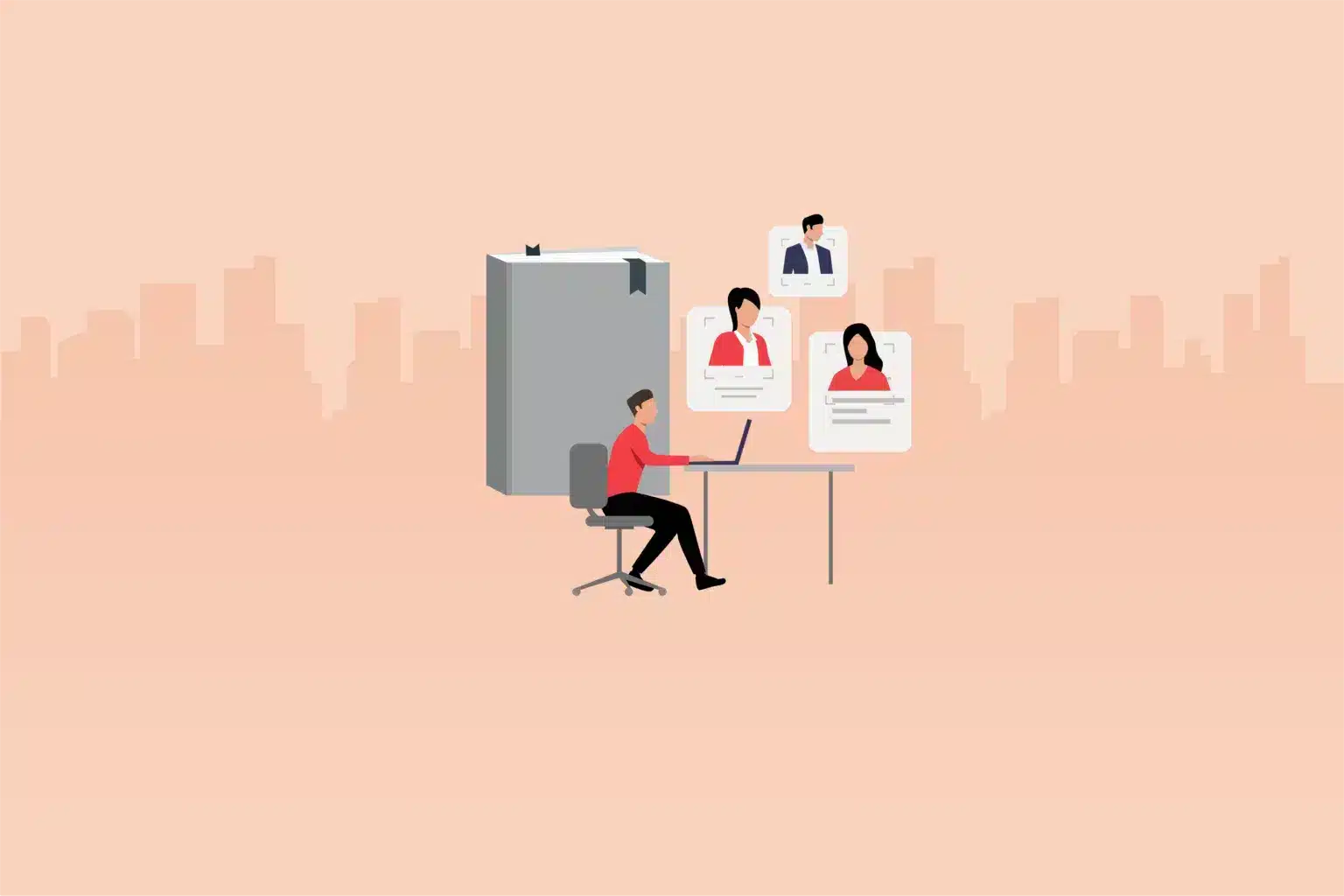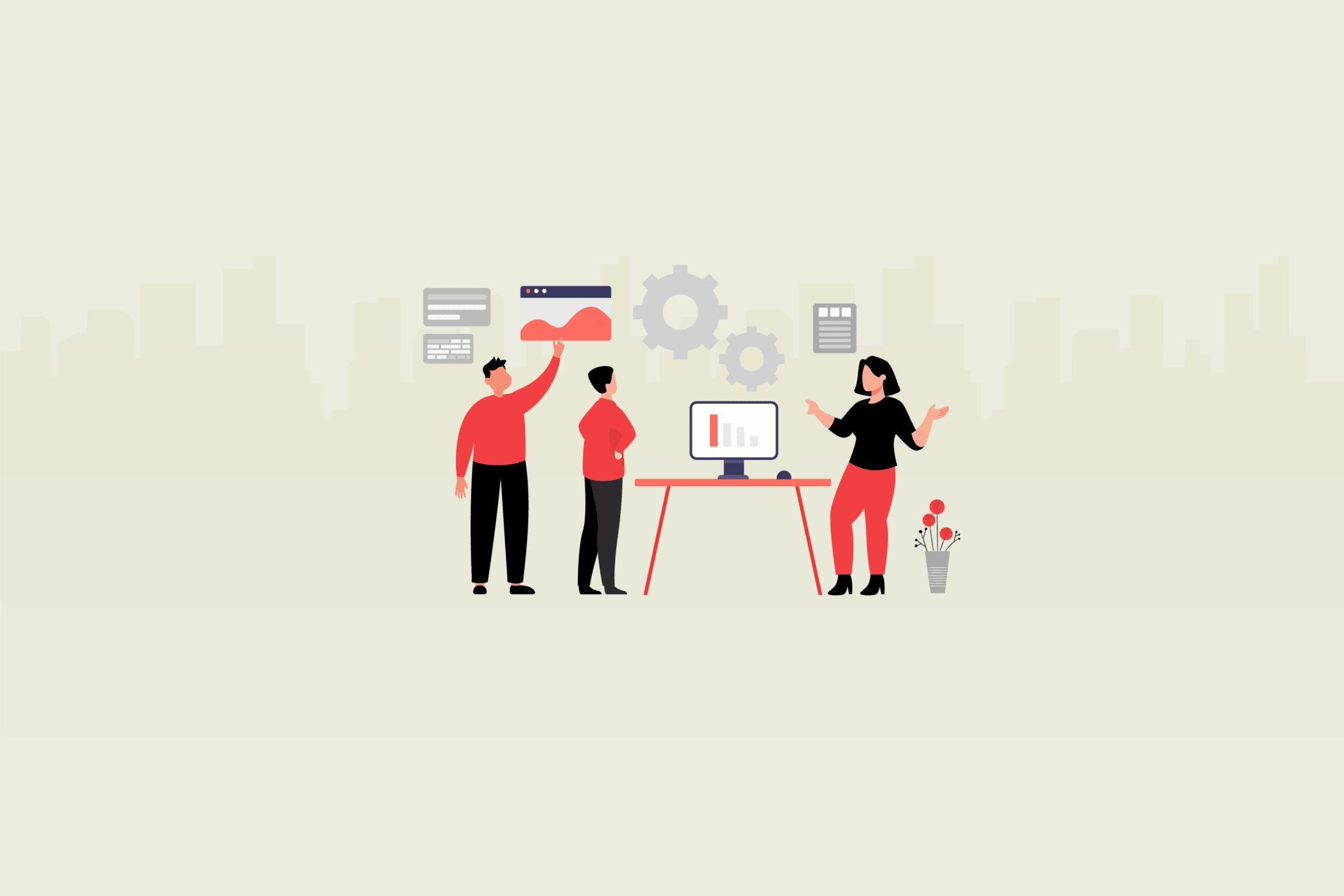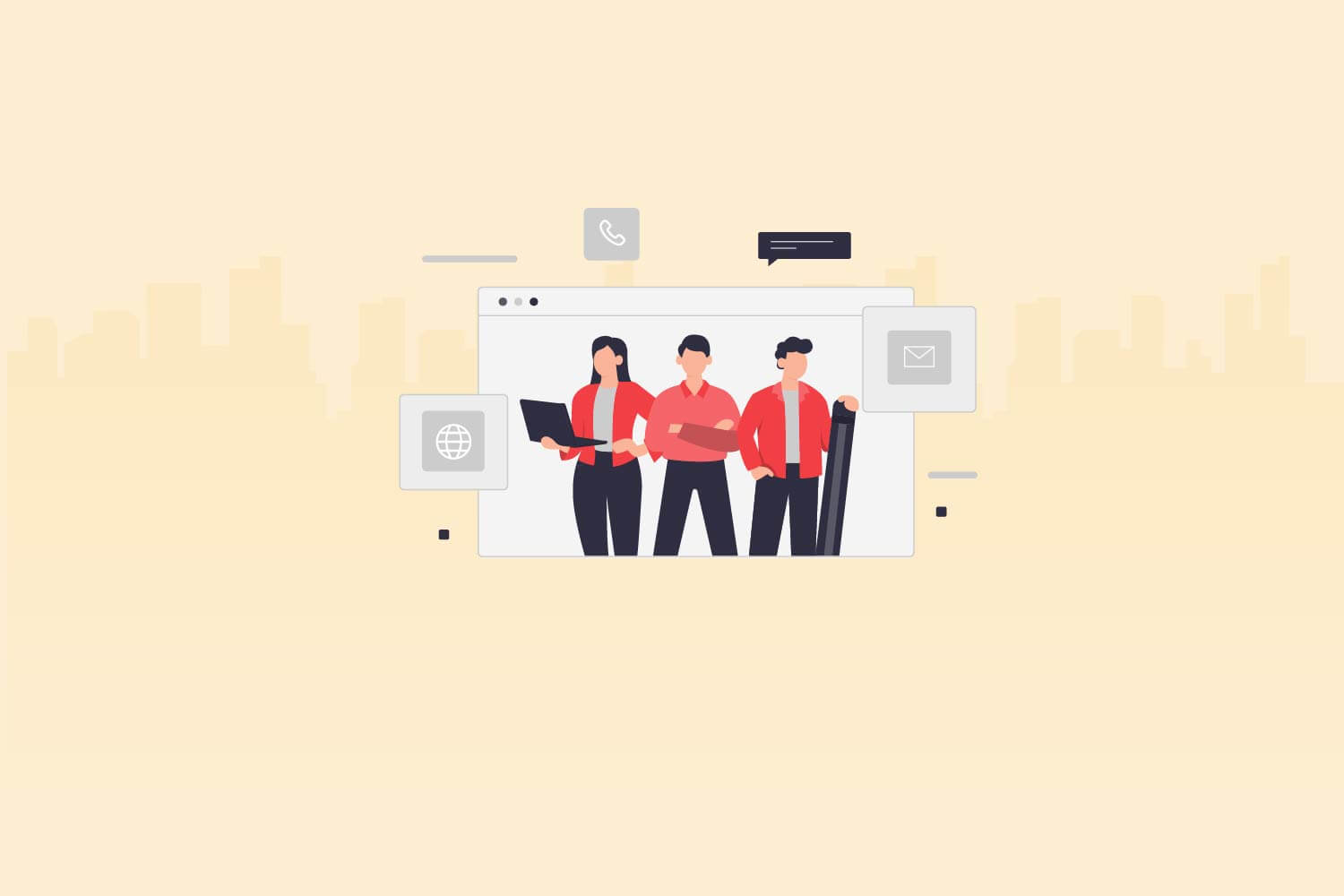In the fast-paced world of business, the concept of organizational development (OD) stands as a beacon of strategic evolution. From its origins in the mid-20th century to its present-day significance, OD has been the driving force behind organizational growth, employee engagement, and improved efficiency. As we stand on the threshold of a new era, it’s imperative to understand the winds of change that are shaping the future of organizational development. The landscape of work is undergoing a profound transformation, with technological advancements, remote work trends, and a renewed focus on diversity and inclusion redefining how organizations operate.
The future of organizational development is closely linked to ongoing trends such as AI-driven decision-making and adaptive leadership models. Research by McKinsey & Company suggests that organizations that embrace these trends can expect a 30% boost in overall performance.
This article delves into the exciting path that lies ahead, exploring the key trends, challenges, and innovative approaches that will shape the future of organizational development.
Understanding organizational development
Organizational Development (OD) serves as the compass guiding businesses through the ever-changing seas of growth, adaptability, and improved performance. At its core, OD is the strategic process by which organizations enhance their internal capacity to navigate challenges, achieve objectives, and cultivate a harmonious work environment. While its essence remains constant, the understanding of OD has evolved significantly over time, reflecting shifts in business paradigms and workplace dynamics.
Traditionally, OD was viewed as a set of interventions aimed at improving specific aspects of an organization, often driven by top-down approaches. However, the future of organizational development is charting a new course, one that is characterized by holistic, systemic, and agile methodologies. In the face of rapid technological advancements, shifting employee expectations, and the rise of remote work, organizations must recalibrate their approach to OD.
In this new era, OD transcends mere interventions and embraces a culture of continuous evolution. It is no longer a one-time fix, but a mindset ingrained in the organization’s DNA. The focus has shifted towards nurturing a workforce that is not just skilled, but adaptable and resilient. A shift from rigid hierarchies to fluid networks, where cross-functional collaboration thrives, is emblematic of the evolving OD landscape.
As we journey into the uncharted waters of the future of organizational development, it is essential to recognize that its transformation is not a departure from its roots, but a natural progression. The principles of enhancing organizational effectiveness, improving employee satisfaction, and driving growth remain intact. What changes is the depth at which these principles are woven into the fabric of modern organizations, propelling them towards an era of unprecedented success and innovation.
Key trends shaping the future of organizational development

In an era defined by rapid technological advancements and dynamic shifts in work patterns, the future of organizational development is taking shape under the influence of several profound trends. These trends are not isolated phenomena but interconnected forces that are reshaping the very foundations of how organizations operate and evolve.
The embrace of technology stands at the forefront of these trends, transforming the way organizations function from the ground up. Automation, artificial intelligence, and data analytics are no longer distant concepts; they are becoming integral components of organizational development strategies. These technologies offer insights into employee performance, streamline processes, and enable data-driven decision-making, ultimately leading to enhanced efficiency and innovation.
The rise of remote work and the gig economy is another trend that is challenging traditional notions of organizational structure. With the boundaries of the physical workplace expanding beyond office walls, the role of organizational development is crucial in facilitating effective virtual collaboration and maintaining employee engagement across diverse locations.
Diversity and inclusion have emerged as non-negotiable priorities for organizations aiming to thrive in the future. This trend necessitates not only the creation of diverse teams but also the implementation of inclusive practices that celebrate differences and foster equitable opportunities. Organizational development strategies must adapt to ensure that every employee feels valued and supported.
Furthermore, agile methodologies are gaining prominence as organizations seek to become more nimble and responsive in their operations. The future of organizational development involves the adoption of these frameworks, allowing organizations to pivot quickly, experiment with new approaches, and address challenges in real-time.
As these key trends converge and interact, the future of organizational development is sculpted into a landscape that demands continuous learning, flexibility, and a deep understanding of human and technological dynamics. In embracing these trends, organizations can pave the way for a vibrant and successful future, where innovation and adaptability are not just assets, but the essence of thriving in a rapidly evolving world.
Challenges in the future of organizational development
As the future of organizational development unfolds, it brings with it a unique set of challenges that demand innovative solutions and thoughtful strategies. These challenges, while diverse, share a common thread of transformation, requiring organizations to navigate uncharted waters with agility and resilience.
One of the primary challenges lies in overcoming resistance to change. Human nature often leads individuals to prefer the familiar, and introducing new organizational development practices can be met with skepticism and reluctance. Organizations must cultivate a culture that fosters open communication, encourages participation, and provides clear explanations of the rationale behind changes to ease this transition.
The delicate balance between technology and human interaction presents another challenge. While technology can enhance efficiency and streamline processes, an overreliance on automation and data-driven decisions can lead to a loss of personal connection. Finding the equilibrium between leveraging technology’s capabilities and preserving human-centric interactions is a key concern in the future of organizational development.
Ethical and privacy concerns also come to the forefront as organizations harness the power of data analytics and AI. Striking the right balance between utilizing data for informed decision-making and respecting employee privacy and autonomy poses a significant challenge. Organizational development strategies must prioritize data ethics and establish transparent practices to address these concerns.
Amid the push for diversity and inclusion, organizations encounter the challenge of authentically integrating these principles into their culture. Simply ticking boxes for diversity does not guarantee an inclusive environment. Crafting strategies that dismantle biases, create equitable opportunities, and foster a sense of belonging is essential to navigate this challenge successfully.
In the face of these challenges, the future of organizational development requires leaders to embrace a growth mindset and cultivate adaptability. Organizations that view challenges as opportunities for learning and transformation will be better positioned to navigate the complexities of tomorrow’s workplace landscape. By addressing these challenges head-on, organizations can ensure that their organizational development strategies are not just effective, but sustainable and conducive to long-term success.
New approaches in organizational development
The winds of change in the world of business are prompting a paradigm shift in organizational development (OD) approaches. As organizations grapple with the demands of a rapidly evolving landscape, new strategies are emerging that focus on adaptability, individual growth, and collaboration.
One of these transformative approaches is human-centric design. Recognizing that employees are the heart of any organization, this approach places their well-being, personal growth, and work-life balance at the forefront. By creating an environment that supports mental and emotional health, fosters skill development, and encourages a healthy work-life integration, organizations can enhance employee satisfaction and productivity.
Another emerging approach involves prioritizing continuous learning and upskilling. In a world where skills quickly become obsolete due to technological advancements, organizations are realizing the importance of fostering a culture of lifelong learning. Organizational development efforts are being directed towards providing opportunities for employees to acquire new skills and stay relevant in their roles.
The concept of networked organizations is also gaining traction. As hierarchical structures give way to fluid networks of collaboration, organizational development strategies are focusing on breaking down silos and promoting cross-functional teamwork. This approach enhances communication, innovation, and problem-solving across departments and disciplines.
Moreover, agility is becoming a defining characteristic of successful organizations. Agile methodologies, borrowed from software development, are being adapted to organizational development. This means embracing change, iterating on strategies, and remaining responsive to evolving circumstances.
As these new approaches emerge, it’s evident that the future of organizational development is rooted in the empowerment of individuals, the cultivation of a dynamic learning culture, and the encouragement of collaborative innovation. By adopting these progressive strategies, organizations can pave the way for sustained growth and competitiveness in an ever-changing business landscape.
What’s coming?

The journey into the future of organizational development is marked by a convergence of innovation, adaptability, and human-centricity. As we navigate this dynamic landscape, it’s clear that traditional approaches are evolving to meet the challenges and seize the opportunities of an ever-changing world of business.
The embrace of technology is reshaping the very fabric of organizations, making automation, AI, and data analytics integral to decision-making and efficiency. However, amidst this technological revolution, the importance of maintaining human connections and preserving genuine interactions cannot be understated. Striking the right balance between technological advancements and the human touch will be pivotal in the OD landscape of tomorrow.
The rise of remote work, diversity and inclusion, and agile methodologies signals a departure from the traditional workplace paradigm. As organizations become more diverse, adaptable, and collaborative, the role of organizational development becomes paramount in nurturing inclusive cultures, remote team cohesion, and responsive operations.
In the face of challenges like resistance to change and ethical dilemmas, organizations must cultivate cultures of open communication, empathy, and data ethics. These challenges are not insurmountable obstacles but stepping stones towards growth and evolution.
The future of organizational development is a tapestry woven with threads of continuous learning, human-centered design, and interconnected networks. It envisions organizations as living organisms that evolve alongside their employees, driven by the pursuit of excellence and innovation.
In embracing these trends, addressing these challenges, and adopting these new approaches, organizations can prepare for a future that is not only defined by its uncertainties but illuminated by its opportunities. The success of the future of organizational development lies in the hands of leaders who dare to reimagine, adapt, and pave the way for workplaces that are not only thriving but truly transformative.
Challenges in the future of organizational development
The road to the future of organizational development (OD) is not without its share of challenges. As workplaces evolve in response to technological advancements, societal shifts, and changing employee expectations, the field of OD must adapt to address these complex hurdles.
One of the foremost challenges lies in managing the dichotomy of technological integration and human connection. While technology enhances efficiency and data-driven decision-making, it can inadvertently lead to reduced face-to-face interactions and a sense of detachment. Striking the right balance between leveraging technology’s benefits while nurturing interpersonal relationships is a delicate task.
Additionally, the diversification of the workforce presents a challenge that calls for a multifaceted approach. Ensuring true diversity and inclusion requires more than a cosmetic representation of different identities; it demands a cultural shift that challenges biases, fosters open dialogue, and champions equitable opportunities. The organizational development of the future must prioritize these aspects, embedding them into the very fabric of the workplace.
As organizational structures become more fluid and adaptable, resistance to change can hinder successful transformation. Individuals and teams might resist new practices, fearing disruption or uncertainty. Overcoming this resistance necessitates effective change management strategies, clear communication, and a collective understanding of the benefits these changes bring.
Ethical considerations surrounding data privacy and AI usage further complicate the OD landscape. Organizations must navigate the intricate web of ethical guidelines while utilizing data insights for strategic decisions. This calls for a conscious approach that respects individual privacy while harnessing the power of data for growth.
While these challenges might seem daunting, they also offer opportunities for innovation and growth. By acknowledging these hurdles and approaching them with empathy, transparency, and strategic thinking, organizations can not only overcome the obstacles but also emerge stronger, more adaptable, and better equipped for the future of organizational development.
New approaches in organizational development
The ever-evolving landscape of business and work has spurred the emergence of innovative approaches in organizational development (OD). As organizations strive to remain competitive and responsive, these new strategies are reshaping how they operate, evolve, and engage with their workforce.
Human-centric design has taken center stage as organizations recognize that their success hinges on the well-being and growth of their employees. This approach places individuals at the heart of the organization, focusing on fostering a culture that supports mental and emotional health, encourages personal development, and promotes work-life integration. By prioritizing employee satisfaction and holistic growth, organizations are creating environments where individuals can thrive both personally and professionally.
The paradigm of continuous learning and upskilling has gained prominence in the face of rapid technological advancements. Organizations are realizing that fostering a culture of lifelong learning is essential to keep up with changing skills demands. This approach requires providing avenues for employees to acquire new competencies, empowering them to adapt to evolving roles and responsibilities.
Networked organizations, which emphasize collaboration and agility, are replacing traditional hierarchies. These structures encourage cross-functional teamwork, knowledge-sharing, and fluid communication across departments. The result is a more dynamic, innovative, and responsive organizational ecosystem.
Furthermore, embracing agile methodologies has become crucial for organizations aiming to remain nimble in a fast-paced world. The principles borrowed from software development, such as iterative processes and adaptability to change, are being applied to OD strategies. This approach enables organizations to respond quickly to evolving circumstances, experiment with new ideas, and maintain a competitive edge.
As these new approaches take root, the future of organizational development is being redefined by its commitment to employee well-being, continuous learning, collaboration, and adaptability. By embracing these strategies, organizations are forging a path toward sustained success in a landscape where change is the only constant.
Conclusion
The future of organizational development is a canvas painted with bold strokes of innovation, adaptability, and human-centric design. As organizations navigate the complex landscapes of technology, remote work, and diversity, the role of OD becomes increasingly pivotal. Embracing agile methodologies, fostering continuous learning, and weaving networks of collaboration will be the cornerstones of success. While challenges such as resistance to change and ethical concerns may arise, they offer opportunities for growth and transformation. By recognizing that the heart of any organization lies in its people, and by prioritizing their well-being, development, and interconnectedness, we can ensure that the future of organizational development is not just a vision, but a thriving reality. The journey ahead is dynamic and exhilarating, and it’s one that progressive organizations are poised to embark upon with enthusiasm and foresight.
Testlify offers a range of assessments and challenges that allow you to gauge candidates’ knowledge, problem-solving skills, and creativity in real-world scenarios. With our extensive test library, you can objectively evaluate candidates’ abilities, ensuring you shortlist the most talented individuals efficiently. Ready to unlock the potential of your hiring process with our talent assessment tool? Book a free 30-minute live demo with Testlify. Our expert team will guide you through the platform, showcasing relevant skill tests tailored to your organization’s needs. With our support, you can streamline candidate selection, saving valuable time and resources.








